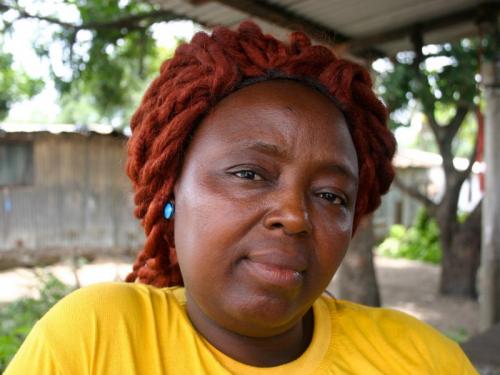NATIONAL PUBLIC RADIO by Jason Beaubein May 9, 2015
MONROVIA -They were the ones who went door to door to stop the spread of Ebola. They were accused of passing on the virus and had water hurled at them. They were the community health workers — the unsung heroes of the Ebola epidemic in Liberia.

Caroline Williams is a community organizer in New Kru Town, a suburb of Monrovia. Here's how she got her message through to Liberians about preventing Ebola: "We talk to them, talk to them, talk to them. At last they started listening to us. All the methods that we been giving them, by God's will, they accepted."Jason Beaubien/NPR
Problem, Solution, SitRep, or ?:
Recent Comments